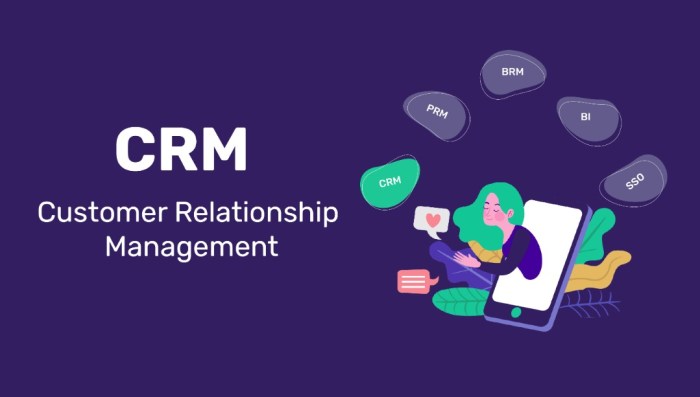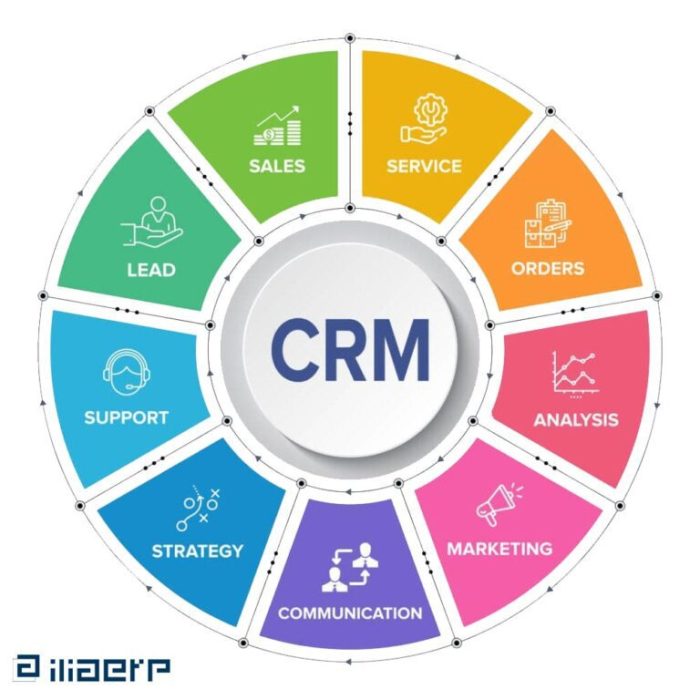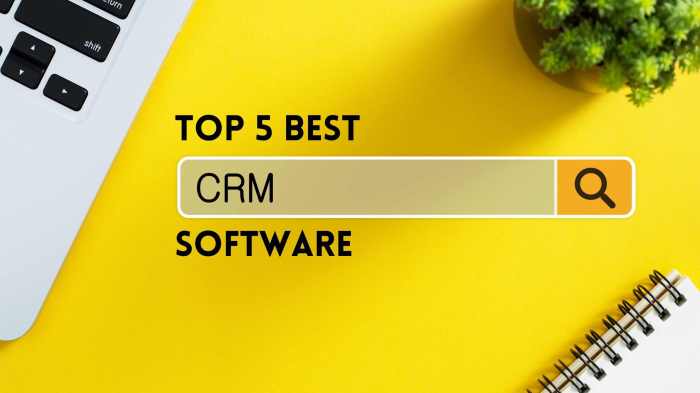Crm with accounting software – In today’s competitive business landscape, efficient management of customer relationships and financial data is paramount. Integrating Customer Relationship Management (CRM) software with accounting software offers a powerful synergy, streamlining operations and providing valuable insights for informed decision-making. This comprehensive guide explores the benefits, functionalities, and considerations of integrating these two critical business systems.
Understanding the Synergy: CRM and Accounting Software Integration
Traditionally, CRM and accounting systems operated as separate entities. However, integrating them bridges the gap between customer interactions and financial transactions, creating a holistic view of your business. This integration allows for automated data flow, eliminating manual data entry, reducing errors, and saving valuable time and resources. Imagine the efficiency of having customer invoices automatically generated after a sale is recorded in your CRM, or having accurate sales forecasting based on real-time customer data.
Key Benefits of Integrating CRM and Accounting Software:, Crm with accounting software
- Improved Accuracy: Automated data transfer minimizes manual data entry, significantly reducing errors and ensuring data integrity.
- Enhanced Efficiency: Streamlined workflows automate repetitive tasks, freeing up valuable time for strategic initiatives.
- Better Financial Reporting: Access real-time financial data linked to customer interactions, enabling more accurate and insightful financial reporting.
- Improved Sales Forecasting: Analyze customer behavior and sales patterns to create more accurate sales forecasts and optimize business strategies.
- Stronger Customer Relationships: A unified view of customer interactions and financial history allows for more personalized and effective customer service.
- Increased Revenue: Improved efficiency, accuracy, and customer relationships ultimately contribute to increased revenue and profitability.
- Simplified Reconciliation: Automated data transfer simplifies the reconciliation process between CRM and accounting data.
Key Features of Integrated CRM and Accounting Software
The specific features of integrated CRM and accounting software vary depending on the provider and chosen system. However, several key features are common across most integrated solutions:
Core Functionalities:
- Automated Invoice Generation: Invoices are automatically generated based on sales recorded in the CRM.
- Real-time Data Synchronization: Data is automatically synchronized between the CRM and accounting systems, ensuring consistency and accuracy.
- Customer Payment Tracking: Track customer payments and outstanding invoices directly within the CRM.
- Sales Reporting and Analytics: Generate comprehensive sales reports and analyze key performance indicators (KPIs) linked to customer interactions.
- Financial Dashboards: Visualize key financial metrics and track progress towards business goals.
- Inventory Management Integration (in some cases): Link inventory levels to sales data for better stock management.
- Project Management Integration (in some cases): Track project progress and link it to billing and revenue recognition.
Choosing the Right Integrated Solution: Factors to Consider
Selecting the right integrated CRM and accounting software solution requires careful consideration of several factors:
Key Selection Criteria:
- Business Size and Needs: Choose a solution that scales with your business growth and addresses your specific requirements.
- Industry-Specific Features: Consider whether the software offers features tailored to your industry.
- Integration Capabilities: Ensure seamless integration with your existing systems and future technology needs.
- User-Friendliness: Opt for a user-friendly interface that is easy to navigate and use by your team.
- Scalability: Choose a solution that can adapt to your evolving business needs.
- Cost and Pricing Model: Compare pricing models and features to find the best value for your investment.
- Customer Support: Ensure the provider offers reliable and responsive customer support.
- Security: Prioritize a solution with robust security measures to protect your sensitive data.
Popular CRM and Accounting Software Integrations: Crm With Accounting Software
Many CRM and accounting software providers offer integrated solutions or compatible integrations. Some popular options include:
- Xero and HubSpot: A popular combination offering robust accounting and marketing automation capabilities.
- QuickBooks and Salesforce: A powerful integration connecting a leading CRM with a widely-used accounting platform.
- Zoho CRM and Zoho Books: A comprehensive suite offering integrated CRM and accounting functionalities.
- Freshworks CRM and Xero: Another strong combination providing a user-friendly CRM integrated with Xero’s accounting platform.
Frequently Asked Questions (FAQ)
- Q: What are the benefits of integrating CRM and accounting software? A: Improved accuracy, enhanced efficiency, better financial reporting, stronger customer relationships, and increased revenue.
- Q: How much does integrated CRM and accounting software cost? A: Pricing varies significantly depending on the provider, features, and number of users. It’s crucial to compare pricing models and features from different providers.
- Q: Is it difficult to integrate CRM and accounting software? A: The complexity of integration depends on the chosen software and the level of customization required. Many providers offer user-friendly integration tools and support.
- Q: What data is typically synchronized between CRM and accounting software? A: Commonly synchronized data includes customer information, invoices, payments, sales data, and inventory levels (if applicable).
- Q: Can I integrate my existing CRM and accounting software? A: Many providers offer APIs and integrations that allow for connectivity with various systems. However, compatibility should be checked before implementation.
- Q: What are the security considerations for integrated CRM and accounting software? A: Choose a provider with robust security measures, including data encryption, access controls, and regular security updates.
Conclusion
Integrating CRM and accounting software offers significant advantages for businesses of all sizes. By streamlining operations, improving data accuracy, and providing valuable insights, this integration empowers businesses to make informed decisions, enhance customer relationships, and ultimately drive growth. Careful consideration of your specific business needs and a thorough evaluation of available solutions are crucial for successful implementation and maximizing the benefits of this powerful synergy.
References
Call to Action
Ready to streamline your business operations and unlock the power of integrated CRM and accounting software? Contact us today for a free consultation and let us help you find the perfect solution for your business needs!
Query Resolution
What are the benefits of integrating CRM and accounting software?
Improved data accuracy, reduced manual data entry, better financial forecasting, enhanced customer relationship management, streamlined business processes, and improved decision-making capabilities.
What types of businesses benefit most from this integration?

Source: tipsmake.com
Businesses of all sizes can benefit, but those with complex sales cycles, multiple revenue streams, or a need for detailed financial reporting will see the most significant improvements.
What are some common challenges associated with integrating CRM and accounting software?
Data migration complexities, integration difficulties, cost of implementation, and the need for specialized training can pose challenges. Careful planning and selection of compatible software are crucial.

Source: ilia-erp.com
How much does CRM with accounting software integration typically cost?
Costs vary significantly depending on the software chosen, the complexity of the integration, and the size of the business. It’s advisable to obtain quotes from multiple vendors.

Source: cloudfront.net
Can existing CRM and accounting systems be integrated?
Often, yes, but the feasibility depends on the specific software used. Some systems offer native integrations, while others require custom development or third-party integration tools.
